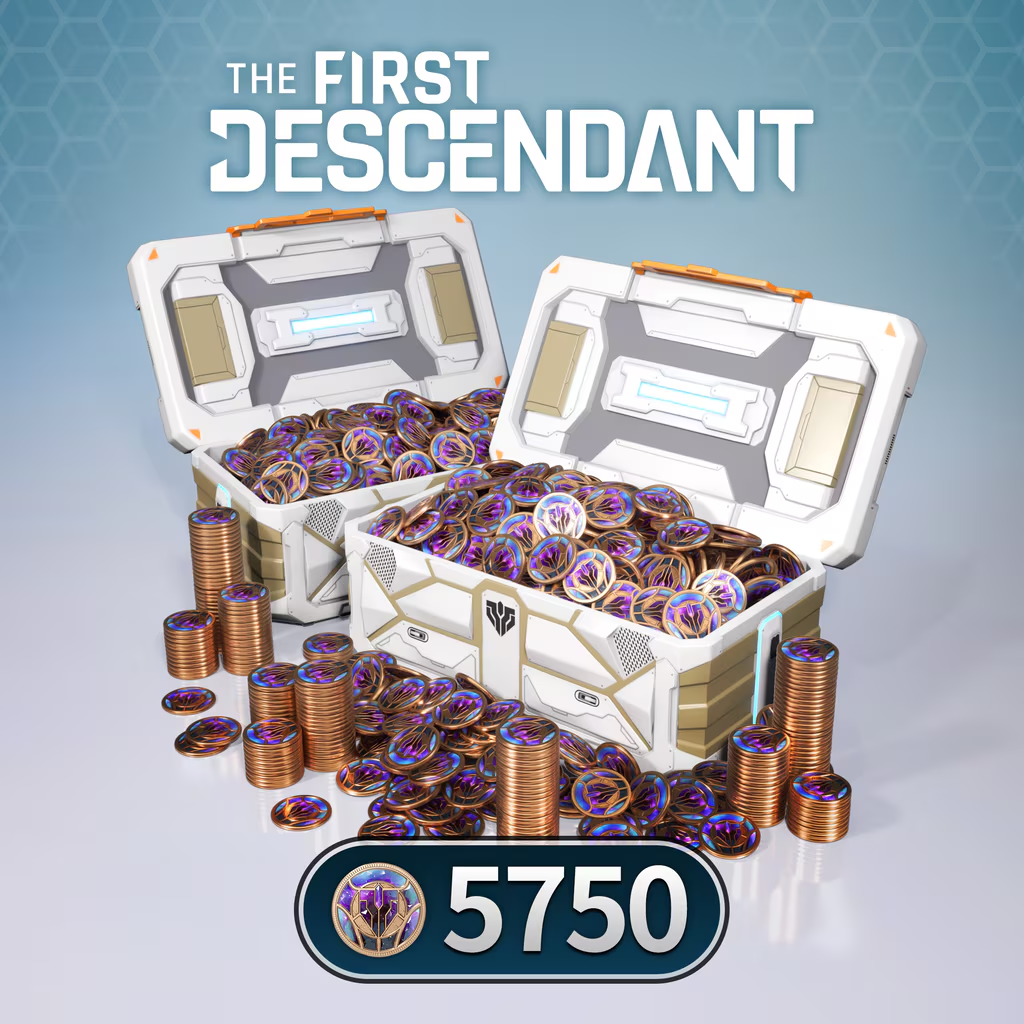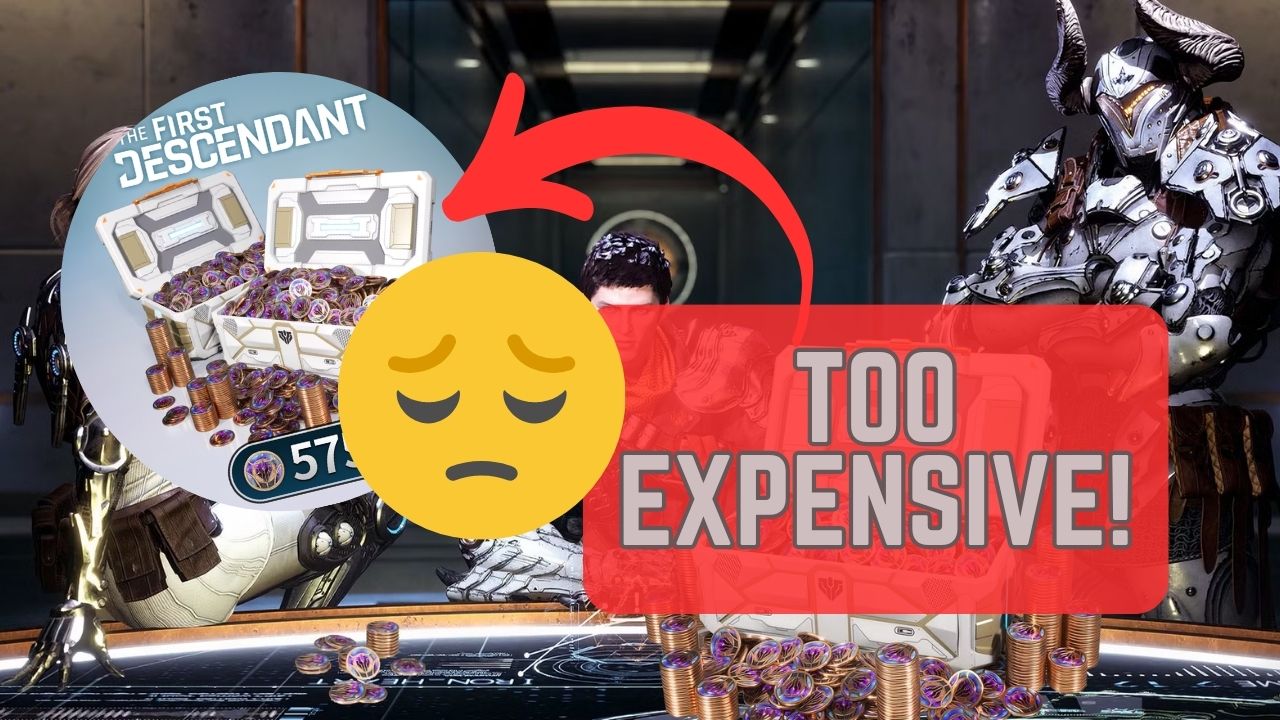Free games can get monetization right—rewarding players for their time while making money from optional cosmetics and convenience.
But The First Descendant doesn’t pull it off.
Instead, it leans hard into pay-to-win tactics, locking progress behind steep paywalls and leaving free players at a massive disadvantage.
In this breakdown, we’ll cover:
Sky-high prices – $100 character bundles? Really?
The weak Battle Pass – Why it’s not worth the grind (or the cash).
Pay-to-win boosts – How paying players get a huge edge.
Why this model pushes players away – And what could fix it.
Spoiler: If you’re not spending money, prepare for frustration.
The Shop and Premium Currency: Caliber

At the center of The First Descendant’s money system is its premium currency, Caliber. Players need Caliber to buy cosmetics, unlock characters, speed up progress, and even expand their inventory.
Like many free-to-play games, the costs add up fast when you want the best items.
Here’s the price breakdown based on the shop:
520 Caliber = $9.99
3,920 Caliber = $69.99
5,750 Caliber = $99.99
This pricing makes a big difference between players who don’t pay and those who do.
For example, unlocking just one Ultimate Character Bundle—which includes a playable character, special skins, and upgrade items—costs 5,000 Caliber, or $100.
Even smaller versions of these character bundles cost 3,000 Caliber, which is still about $60.
When you think about players wanting multiple characters, customization items, or boosts, the cost of playing The First Descendant at its best can easily be hundreds of dollars or more.
The Paywall Problem: Characters, Skins, and Pay-to-Win Concerns
One of the most debated parts of The First Descendant’s money-making system is how it handles its paid content.
Most of these items fall into three categories:
1. Cosmetics (Skins & Outfits):
There are a lot of special skins you can buy, with prices ranging from 750 Caliber ($15) for basic ones to 1,900 Caliber ($40) for fancier “Awakened” or “Limited” skins. For example, the Awakened Bunny Set costs almost $40—a lot for something that only changes how your character looks.
While these skins are optional, they’re a big part of what makes the game fun and lets players show off their style. The problem is, the high prices make it hard for many players to afford them.
2. Characters (Descendants):
You can unlock new characters by either playing a lot or paying real money. But the prices to skip the grind are shockingly high:
$10-$20 per character (depending on rarity).
$60-$100 for “Ultimate” bundles, which include skins and other bonuses. For example, the Ultimate Bunny Bundle (which has the character, a skin, and some extra items) costs 5,000 Caliber—about $100.
While you can earn characters for free, the grind takes so long (sometimes hours or even days) that many players feel pushed to just buy them instead.
This makes things frustrating for non-paying players, who end up at a big disadvantage in both gameplay and looks.
3. Pay-to-Win Boosts:
The most worrying part of the shop is the “convenience” boosts that help players progress faster. These include XP boosts, gold boosts, and other upgrades. For example:
A 30-Day Gold Boost costs 575 Caliber (~$11).
XP Boosts are sold separately for characters, gold, and weapons. When you add them all up, free players end up with a 30% slower progress rate than paying players.
In a multiplayer game—whether competitive or cooperative—this kind of unfair advantage is hard to ignore.
By selling boosts that directly affect gameplay, The First Descendant risks becoming more of a pay-to-win game rather than a fair experience for everyone.
The Battle Pass: Disappointing Value
The First Descendant’s Battle Pass is another sore spot for players. It’s supposed to keep people playing regularly while also making money, but it ends up feeling pretty weak. Like most games, there are two versions:
Free Pass – Gives basic rewards, but they’re not very exciting.
Premium Pass – Costs 500 Caliber (~$10) and includes sprays, XP boosts, and upgrade materials.
The problem?
Even the paid rewards don’t feel worth the effort. Most of the stuff you get is minor upgrades that don’t make much difference after all the time you put in.
Worse yet, the Battle Pass doesn’t give back much Caliber. Finishing the whole thing only gets you about 300 Caliber (~$6)—nowhere near enough to buy anything good.
Compared to games like Warframe or Destiny 2, this Battle Pass just doesn’t feel rewarding. There’s no real excitement or sense of progress, making it even harder to justify spending money on it.
Free-to-Play, but at What Cost?

The First Descendant may be free to download, but players who don’t spend money are constantly treated like second-class citizens.
Whether it’s grinding for characters, customizing your look, or just leveling up, free players face constant roadblocks meant to push them toward spending money.
A perfect example is inventory space. Like many free games, The First Descendant limits how much gear you can carry.
Want more space?
You’ll have to pay for it. This forces free players to waste time cleaning out their inventory instead of actually playing the game.
At its core, The First Descendant makes things annoying on purpose. Limited storage, endless grinding, and locked content all push players toward microtransactions.
Sure, each purchase might seem small, but if you want to actually enjoy the game without constant headaches? The costs pile up fast.
How Does The First Descendant Compare to Competitors?
When looking at The First Descendant’s money-making system, it’s helpful to compare it to other free games like Warframe, Destiny 2, and Genshin Impact.
These games have similar gameplay but handle paid content in less frustrating ways.
1. Warframe: Fair Grind, Optional Spending
Warframe gives players a good balance—you can earn almost everything by playing or trading with other players.
Most microtransactions are for cool cosmetics, and paid boosts don’t make free players feel left behind.
Sure, some things are expensive, but you never have to pay to progress.
2. Destiny 2: Pay for Expansions, Not Advantages
Destiny 2 makes money mostly through big expansions and cosmetics. While some players complain about pricing, the core game stays fair—paying doesn’t give you a big edge in fights.
The First Descendant, on the other hand, pushes players to buy boosts just to keep up, making the game feel unbalanced.
3. Genshin Impact: Gacha, But Still Playable for Free
Genshin Impact uses a “gacha” system (random pulls for characters), but free players can still beat all content with patience. Events and free rewards help balance things out.
Meanwhile, The First Descendant locks basic features—like inventory space, character unlocks, and even how fast you progress—behind paywalls.
The Big Difference
Other free games find ways to make money without making free players feel punished.
The First Descendant, though, constantly nudges you to spend just to enjoy the game normally.
Is There Hope for Improvement?
If The First Descendant wants to keep players around for the long haul, it needs to cut back on the aggressive money grabs. Here are some simple fixes:
1. Let Players Earn More Caliber
Right now, getting premium currency without paying is way too hard. The game should give out more Caliber—maybe by adding better rewards to the Battle Pass or setting up daily/weekly challenges that actually feel worth the effort.
2. Make Free Players Feel Respected
The gap between paying and free players is way too big, especially when it comes to leveling up. Even small boosts for free players—like a little extra XP or gold—would help balance things out.
3. Stop Charging Ridiculous Prices
$100 for a single character bundle is insane. Lowering prices (or at least packing more value into them) would make players way happier—and more likely to spend.
4. Make the Battle Pass Actually Worth It
Right now, both the free and paid Battle Pass rewards feel weak. Better loot—especially in the free track—would make players want to buy the Premium Pass, instead of feeling forced into it.
Conclusion: A Stark Reality for Free-to-Play Players
The First Descendant has potential, but its aggressive monetization is pushing players away. Charging $100 for a single character, locking basic features behind paywalls, and offering weak free rewards isn’t just unfair—it’s bad for the game’s future.
Here’s the fix:
Let players earn more free currency – Give better rewards for playing, not just paying.
Respect free players – Stop treating them like second-class gamers.
Lower insane prices – Nobody thinks a $100 bundle is reasonable.
Make the Battle Pass exciting – Reward loyalty, not just wallets.
If the devs want this game to last, they need to focus less on squeezing players and more on keeping them happy.
Fair prices and better free rewards = more players sticking around long-term.
Simple as that.




